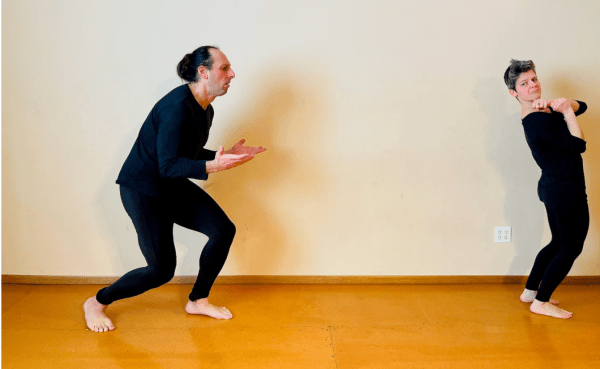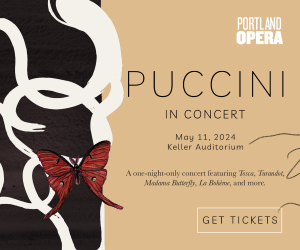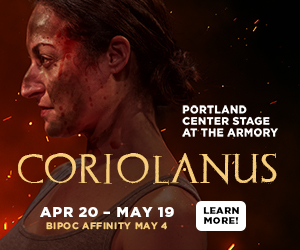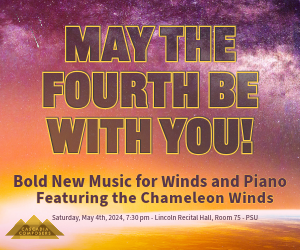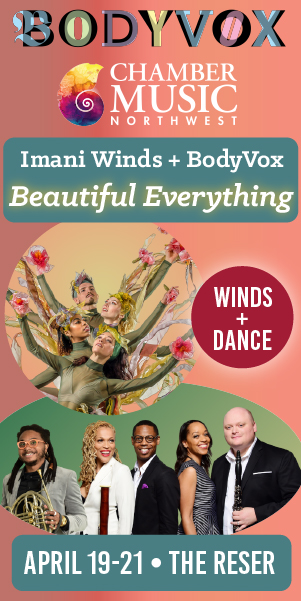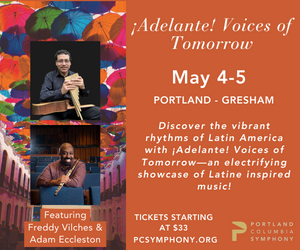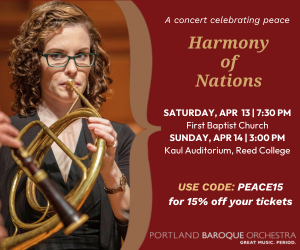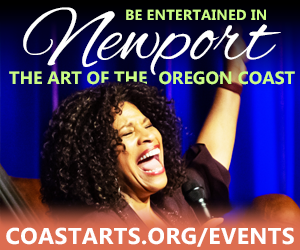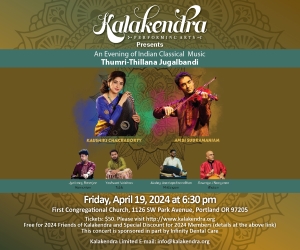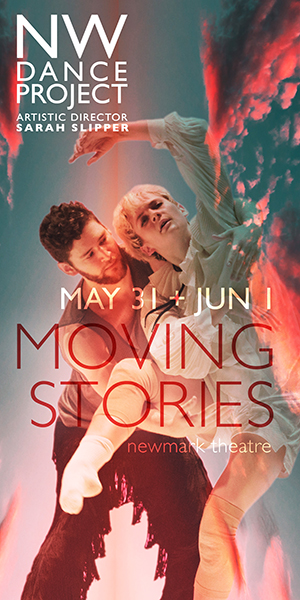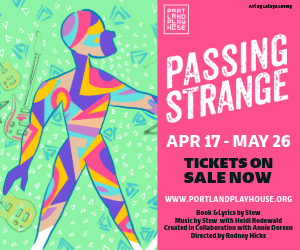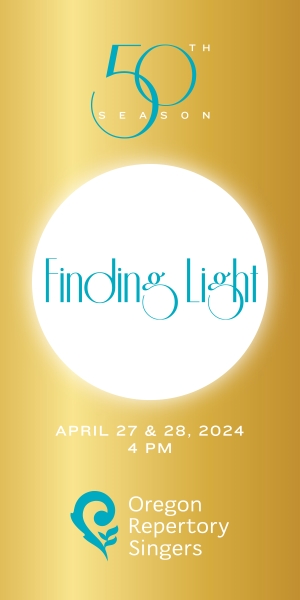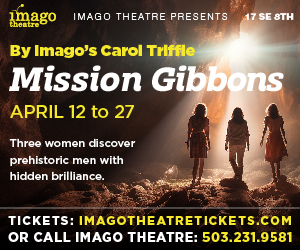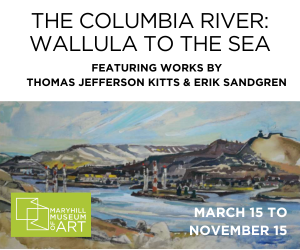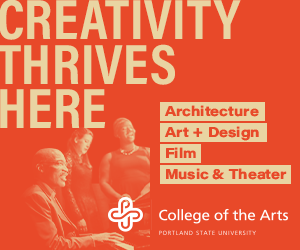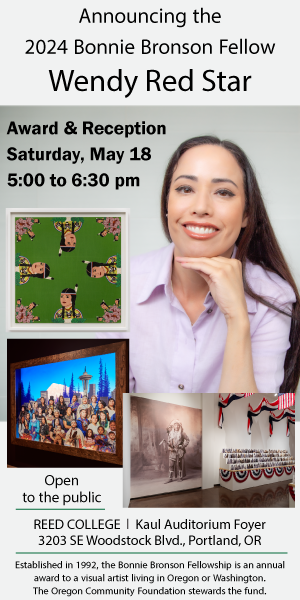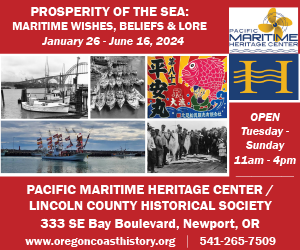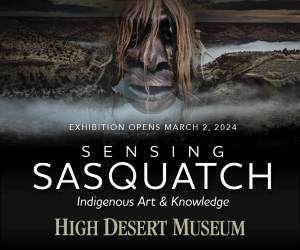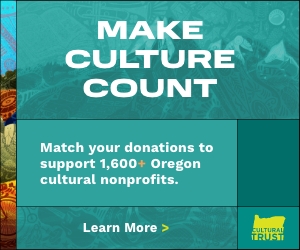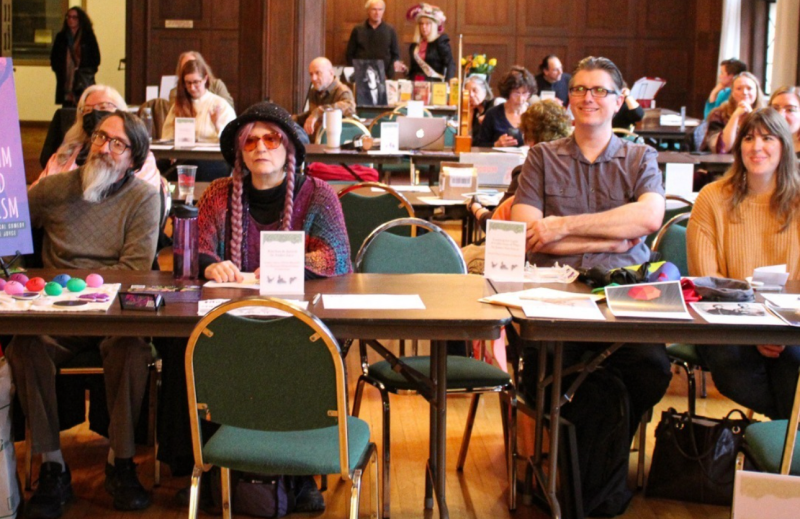
Fertile Ground is back. The pandemic may have made Portland’s theatrical soil temporarily unsuitable for seeding live performances of new works, but a new team is nurturing the strong roots put down over the city-wide festival’s 15-year history to help one of Oregon’s most vital sources of original artistic creation spring back to life. Their efforts and those of many other members of the metro area’s theater community culminate April 12-21 in a 10-day, 65-production harvest of new, locally grown shows at multiple venues throughout the Portland metro region.
Incubator, Connector, Generator
Before taking a pandemic pause (the festival produced online versions in 2021 and ’22, and took 2023 off to retool), Fertile Ground focused the region’s attention on new theater, much as South by Southwest did for original music in new festival director Tamara Carroll’s former hometown of Austin, Texas — except that FG’s creations are entirely homegrown.
“Fertile Ground provides a platform for new work at various stages of creation,” Carroll told ArtsWatch, ranging from staged readings (without props or costumes or blocking), to script-in-hand readings, workshops, concert readings (just the songs in a musical theater work) and various stages of development, all the way to a few fully staged world premieres of all or part of a work in progress.
Some go on to further development, including several that have been produced in other cities or states. Carroll says the festival is compiling a list of “where are they now” subsequent productions of shows birthed at Fertile Ground. And the affordable passes also make it easier for audience members to take a chance on shows made by artists they’re likely unfamiliar with.
Along with being a vital showcase for new work, Fertile Ground is also an instigator. For independent Portland-area theater makers, the proudly non-curated festival provides a target and a motivation: Establishing a specific date open to anyone gives writers that all-important impetus, a deadline. They — I should say “we,” because, full disclosure, I’ve written or co-written several works in the festival, although not this year — plan the intermediate steps of writing their next play around that date.

It’s also a connector. In a way, producing Fertile Ground is like putting on a show, writ large — bringing together diverse talents to create something greater than the sum of their parts. Bigger, even, than Portland itself: The festival extends to Milwaukie, Beaverton, and Hillsboro. In fact, Fertile Ground’s vast scope is one of its superpowers.
“Fertile Ground connects a bunch of theater makers in town who are doing different kinds of work, especially small independent producers or individuals who get to know and support each other’s work,” Carroll explains. Normally, “one show, one independent reading happening one or two nights in a random space might not get on many people’s radar beyond the folks putting on that show, just their network. But this festival connects all the networks. If you know me or my show, then suddenly you have access to all these other events happening around the same time. The other producers are finding out about what’s happening in the festival and going out and supporting each other’s work, and learning from each other’s work — both the art part, and also the producing part.”
This especially benefits emerging creators on the margins of the region’s established theater scene, “those independent producers who have few resources and no marketing budget can reach a much broader audience,” Carroll says. “It’s so incredibly expensive to produce a musical or any show with more than about six people in it. You can start building buzz around it now, so that by the time it reaches a full production, people are aware of it.”
Which means that Fertile Ground’s impact extends beyond its annual run. “It’s an all-boats-rise model,” Carroll says. “If we get people excited about seeing the festival, that excitement spreads to the theater that’s happening throughout the year.”
New Leadership, New Vision
Carroll has been making connections and instigating new work since producing the nation’s largest collegiate new works festival during their graduate student days at the University of Texas at Austin, where Carroll received an MFA in Drama and Theatre for Youth and Communities. Carroll’s wide-ranging theatrical experience also includes co-founding Portland’s Action/Adventure Theatre company, where they directed many well-regarded shows, including the acclaimed “Fall of the House” series that graced the inaugural Fertile Ground Festival.
After a few years pursuing the theatrical muse in Atlanta, Carroll returned to Portland, working in the Educational Theatre Program at Oregon Children’s Theatre before moving to Profile Theatre, where they are Director of Community Engagement. Carroll now faces the daunting challenge of rebooting Fertile Ground after its pandemic pause (it did produce virtual events during the interregnum), and succeeding much-admired previous Festival Director Nicole Lane, who led it to unprecedented heights and breadth over her long tenure: Fertile Ground staged its first festival in 2009, founded and led by Trisha Mead, with Lane as assistant director. The following year Lane took over as director and led the festival for 13 years, until last year’s hiatus, during which she passed the reins along to Carroll and the new team, and remained available for consultation during the transfer.

To Carroll, the festival’s new leader, “producing is in a way less stressful, less personal, less ego-involved,” than directing or writing a play. “It’s just about helping other people achieve their dreams and artistic vision. So it feels like something I can do to serve and support a lot of people at the same time. The festival energy is really fun. And I’m passionate about new work.”
They’ve assembled an enthusiastic and experienced team including former Bag&Baggage Productions Artistic Director Cassie Greer as Managing Director and Carroll’s fellow Profile Theatre staffer Eboni Lovell as Marketing Director. It’s an artist-run festival: Both Carroll and Greer are directing shows, Carroll is producing another and is dramaturg for a third, and Greer is performing in yet another.
The new leadership team knows that while they’re rebuilding on a strong foundation, Fertile Ground must also evolve. The theater world has changed, well, dramatically since the pandemic, and mostly for the worse, as audiences have been slow to return and national magazines have lamented many companies’ struggles to survive.
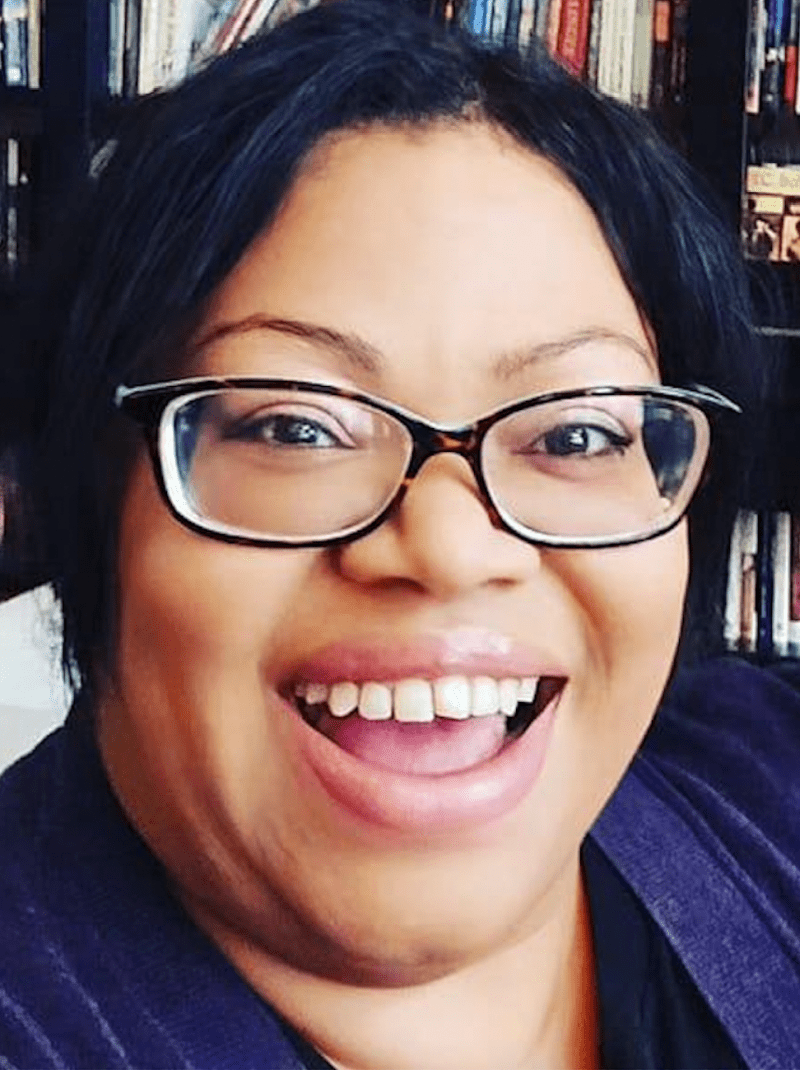
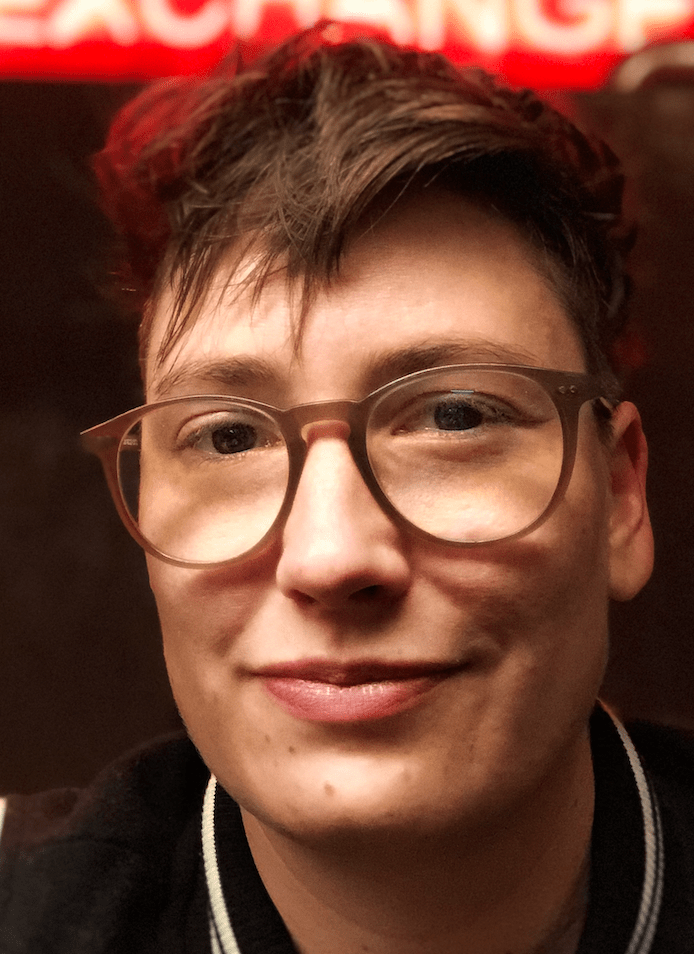
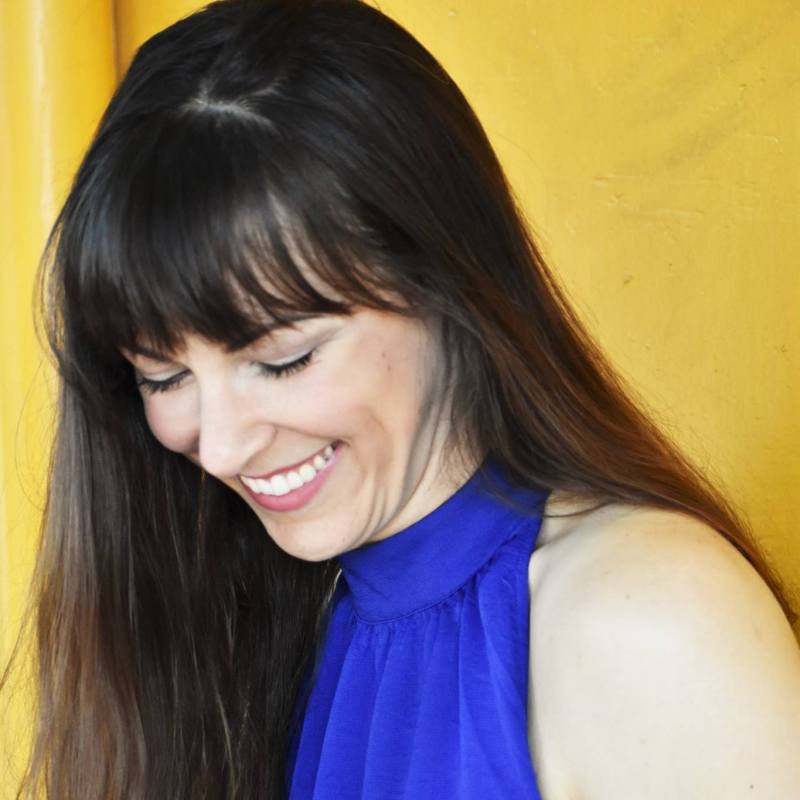
From left: Fertile Ground Marketing Director Eboni Lovell, Festival Director Tamara Carroll, Managing Director Cassie Greer.
One change is the explicit geographical organization of performance venues, with performances clustered in five areas around the Metro region, inspired in part by a recent $25,000 scale-up grant from the city’s development agency, Prosper Portland.
“We were thinking about not just venues but neighborhoods,” Carroll recalls. “Theater is happening in those venues all the time, not just during the festival, and we want to help audiences find out what kind of theater is happening there.”
Carroll was especially inspired by the Atlanta Fringe Festival, and by Portland’s Bridgetown comedy festival. “When that festival started, it was condensed into one area and it was just alive,” Carroll remembers. “You’d see people having a shared experience. Part of the fun of the festival is this awareness that everybody’s running around doing the same thing you are.”
For all its geographic range, this year’s festival does have a sort of a center for its orbiting neighborhood nodes. The team is working closely with another newly revived Portland theater institution, Artists Repertory Theater, to provide a downtown venue for producers who hadn’t yet found spaces, and to continue its earlier support for Linestorm Playwrights’ reading series there.
“We had this vision of someone coming in from out of town who could go to one neighborhood, one venue, see a noon show, go have lunch somewhere nearby, see another show, go out for a drink, see another show — seeing multiple things in one day without driving from Hillsboro to Southeast Portland,” Carroll explains. “This partnership with ART is a step in that direction. My hope and intention is, based on everything we’ve learned this year, to have more partner venues like that. Those economies of scale are good for the venues, good for producers, good for audiences.”
Carroll says the festival hopes to work with local businesses to facilitate this kind of arrangement. At other festivals, for example, area restaurants have paid for sponsorships or advertising in the brochure, offered discounts to ticket holders, etc.
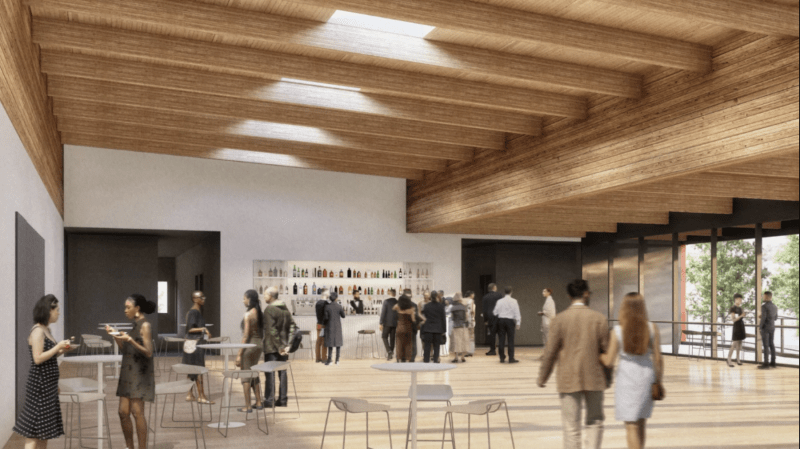
Looking ahead, Carroll hopes to further boost Fertile Ground’s reach and accessibility by building on the Grow Grants program that Lane created during the pandemic to help reduce cost-specific barriers to underrepresented and marginalized artists. This year, the festival is also investing in its artists in other ways. “We did subsidize rent for artists producing in our partner venue,” Carroll notes, “and we covered the cost of ASL interpreters in that partner venue as well. We also provide support finding venues, offer marketing and self-producing workshops, and gave direct additional support to projects for cultural consultants, and this year we are profit-sharing Festival Pass sales evenly among producers.”
The new team also wants to increase the festival’s role in scheduling times and venues, to avoid producers competing with each other. And, supported by the Scale-up grant, they’re working with the Disabled-led organization The Curiosity Paradox to make the festival even more accessible to people with disabilities, from ASL interpretation to universal website design and more.
Connection, inclusion, and accessibility — those are the keystones of Fertile Ground’s new leadership.
“We’re trying to hit a sweet spot that maintains producer autonomy,” Carroll says. “It’s a whole really exciting puzzle about how to help independent producers primarily doing their own thing, but also making sure we’re bringing everyone along as we advance in essential areas like accessibility.”
***
Fertile Ground Festival 2024
- When: April 12-21.
- Where: Venues in several neighborhood clusters: North/Northeast Portland; Sellwood/Milwaukie/Lake Oswego; Southeast Portland; Southwest/Downtown Portland; Beaverton/Hillsboro.
- What’s playing: See the complete lineup of shows here. And stay tuned for ArtsWatch’s overview of this year’s offerings.






